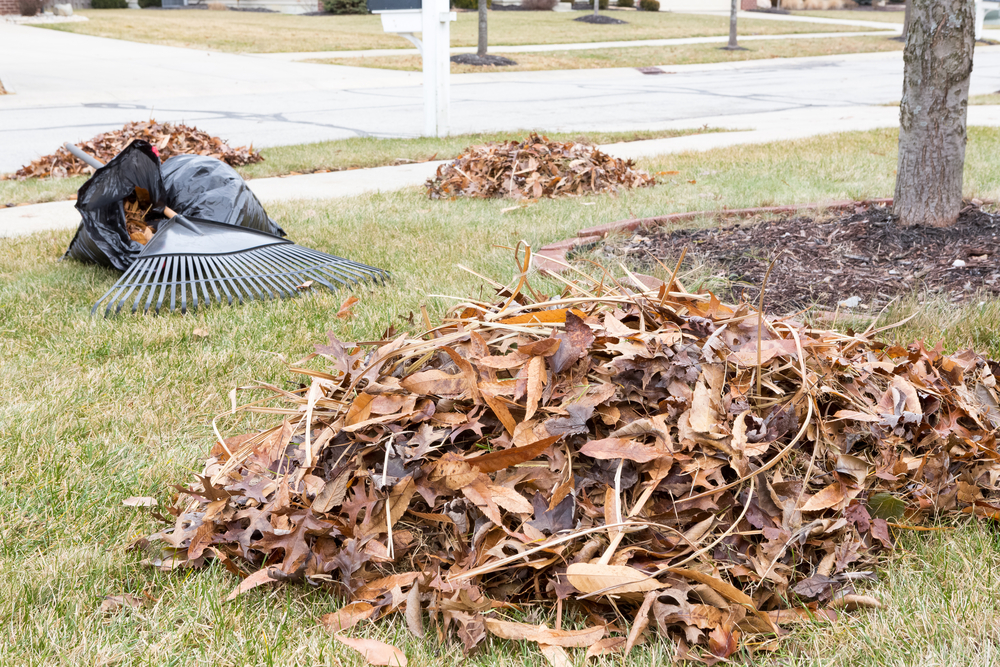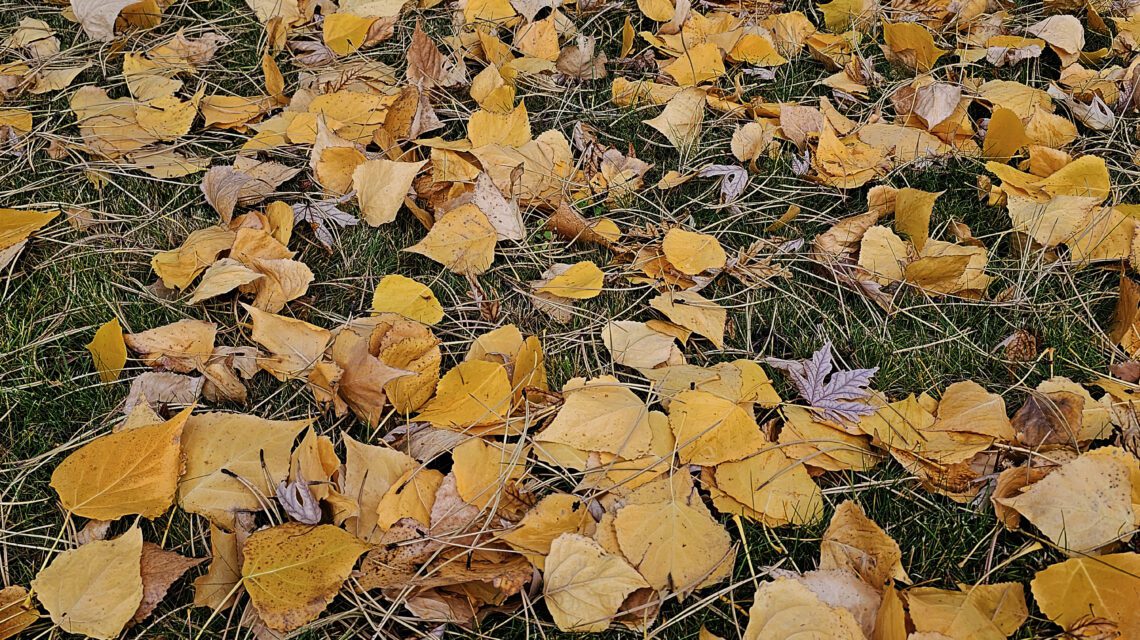Whether or not you have a deciduous tree in your yard, you’re probably experiencing a lot of leaf clutter on the ground right now. Picking up fall leaves is a chore that many homeowners dislike, so we’ve compiled some tips to help your fall leaf maintenance go smoothly this year:
- Do fall clean-up regularly.
- Use a tarp to help with clean-up.
- Store leaves away from your house.
- Try composting.
- Mow fallen leaves for better mulching.
Do Fall Clean-up Regularly

It might be tempting to just wait until your trees have shed all of their leaves before you start the clean-up process. However, if you pick up the leaves periodically throughout the season, you’ll have a much easier time. You’ll be able to pick up the leaves more quickly, and they will fit into your garbage bin each week.
Use a Tarp to Help with Clean-up
The tricky thing about raking the leaves in your yard is covering the whole area. You might end up with multiple piles of leaves throughout the yard that will dissipate the moment a breeze sweeps through. Instead, think about using a tarp. By raking or blowing the leaves onto the tarp, you can move them around in bulk easily. This also makes it easier to dispose of the leaves.
Store Leaves Away from Your House
If you need to keep your leaves somewhere until they can be thrown away, store them away from your home. Damp leaf piles are ideal hiding spots for insects and small critters that may try to creep into your home.
Piles of dried leaves can also become a fire hazard, so you should try to dispose of the leaves, compost them, or mulch them as quickly as possible.
Try Composting

If you like to garden, then leaves are a great base material to make compost, which can help fertilize your soil. Making your own compost pile can save you money on store-bought compost in the spring.
You can compost things like grass clippings and tree trimmings as well as paper and shredded fruits for a healthy compost pile. People who add compost to their gardens generally have healthier plants and a better vegetable yield.
However, even if you don’t like gardening or don’t grow a garden yourself, you can still be a part of the sustainability movement by putting your leaves and other organic waste into a green waste bin for pickup. Many Utah cities, including Salt Lake City, Kaysville, Centerville, etc. participate in curbside green waste disposal programs. When you choose to participate, you simply leave all your green waste in a specified bin. Then the city picks it up on garbage day and drops it off at a facility where they make compost.
Mow Fallen Leaves for Better Mulching
Instead of letting the leaves sit on the surface of your lawn, you can mow the fallen leaves to create mulch that will break down easier and add nutrients to the lawn.
If you decide to go this route, we suggest mowing in the morning before the dew has evaporated. This will prevent dry leaf dust from getting kicked up all over your yard and into your sinuses.
You can choose to scatter some of the leaves over your lawn, or you can collect the leaves after mulching them with the lawn mower and spread them over your garden. Leaves can provide a protective barrier from weed seeds and help insulate the soil in early spring. Eventually, the leaves will break down and add nutrients to the soil.
Are you struggling to keep up with your yard care? Stewart’s lawn care and tree experts have helpful tips and top-quality treatments to keep your lawn and yard beautiful all year round. Text or call us at 801-226-2261 for more information and a free quote today!



